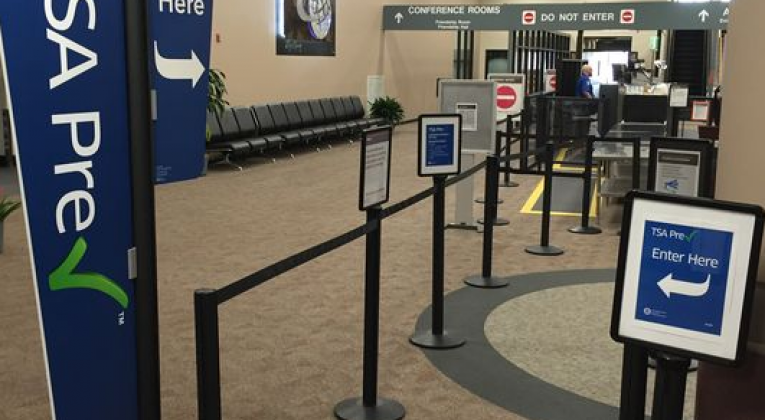It’s almost summer, and we know what that means: Hordes of travelers will be jostling to get through security. With record numbers of passengers predicted this summer, it is time to protect yourself and, if you haven’t done so already, get TSA PreCheck.*
Long Lines at Security Are Going To Get Longer

You may have noticed lines picking up at airport security recently. You sure have if you live in Denver. Or Seattle. Or Atlanta. Even the Minnesota-nice folks at MSP are getting angry. Airports are threatening to get private screeners but, as long as the TSA is setting the procedures, the lines with private screeners will be just as long.
The lines aren’t the fault of the TSA. Okay, I’m joking. The bureaucracy at DHS messed this one up from soup to nuts (and don’t try to bring soup through security, since it’s a liquid). It started with the base expectation that several million people would sign up for the service, not counting on the fact that a high fee, extensive background check, limited interview locations (generally at an airport) and long wait times for appointments might put a damper on expectations. The TSA’s budget was based on its original expectations for PreCheck, meaning that regular lines were understaffed.
The TSA is also dealing with the fact that it failed 95% of its tests last summer, meaning that Administrator Peter Neffenger’s goals are less about efficiency and more about punishing passengers giving each guest more personal time. He told a Senate subcommittee:
To ensure that we do not repeat past failures, determining root causes of the problems has been our utmost concern. We have concluded that strong drivers of the problem included leadership’s focus on efficiency, environmental influences that created stress in checkpoint operations, and gaps in system design and processes. A disproportionate focus on efficiency and speed in screening operations rather than security effectiveness powerfully influenced organizational culture and officer performance.
-March 1, 2016
In other words, no more failing “red team” tests. Security will become like the SATs, simply a test of how well they take that particular test. Meanwhile, the TSA gets to use its inability to solicit customers to soak Congress for more money to maintain its basic security. Naturally, until that happens, PreCheck lanes are at risk to close earlier and shift resources to the regular lines.
Getting PreCheck
TSA PreCheck is the equivalent of Disney’s fast passes. You’ll get a much shorter line, keep most of your clothes on and even get to keep your laptop in its case. You can get PreCheck on its own, or as part of a larger package deal. The basic PreCheck is $85 for a 5-year period.

While you can get PreCheck on your own, you may want to explore one of the other options (which include PreCheck) that get you a “fast pass” at borders, as well. The most popular seems to be Global Entry, likely because there are several credit cards that will pay the $100 fee for you as a benefit (although those cards all come with large annual fees).
Why Now?
With summer approaching, it’s more important than ever to be able to maneuver your family through security. Under the “old regime,” filling out the form now would result in an appointment sometime in 2019. But the TSA finally seems to be getting the picture. They are expanding hours, opening more slots on weekends and even partnering with private companies to speed up the system. I had a family member who filled out the form, got the background check quickly and got an appointment, all within a two week period. That gets you in well before the unofficial start of summer, Memorial Day. PreCheck is not perfect. The lines aren’t open all the time and you can still be pulled out for a random screening. But it sure as heck beats the alternative.
——————————————————————————————————————————————————–
*There’s an argument to be made that passengers shouldn’t be forced to pay a fee for the right to humane screening. It happens to be an excellent one. For now, though, it’s a battle that I’m simply not brave enough to fight.
Cover photo courtesy of Creative Commons





